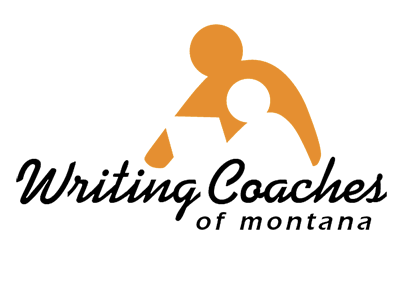I was not an accomplished student. I earned loads of Bs and Cs, but only one D and nary an F. Now and again an A would accidentally fall upon my report card. Armchair psychologists might label my tween/teen motivations as both fear of failure and fear of success. I might have labeled myself painfully—and perhaps permanently—average. I wasn’t going to set the world on fire and the world was not going to set me on fire, either. Good enough seemed to be good enough for me. Without shame, I often stated my full name as Gregory C+ Mueth.
Writing assignments were especially agonizing. Earning a crummy C was like running a marathon: way too much effort and angst to go just 26 miles. Regretfully, I’d often risk being caught for plagiarism than endure hours in front of a blank sheet of paper that would ultimately evolve into embarrassing drivel. I simply felt I had no thoughts worthy of putting on paper. Nor did I possess the skills necessary to make such a thought coherent.
FAST FORWARD: A few years back I became semi-retired from a rather successful and satisfying career as an advertising writer. I was pondering ways I might volunteer within the local community. An article in the Daily Interlake piqued my interest. It was about Montana Writing Coaches and their unique mission to “Help Montana Students grow as confident and competent writers.” I could help kids like I was way back then get something I got. I was hooked!
REWIND: I caught fire for writing late in high school. In junior year English, I was offered the opportunity (revolutionary for 1972) to produce a film rather than write a short story. It became an 8-1/2 minute silent thriller about greed, consequence and redemption. It earned popular acclaim, at least within our small Illinois farming town. Ironically, other than the title and credits it included not one thing that resembled a sentence. But it did tell a story and it did reveal to me that I indeed had ideas worth expressing.
The next year—my senior year—I was itching to create another film for this same teacher. Maybe this time a talkie? But my astute instructor balked: “Greg, you’ve proven yourself a very capable filmmaker, but this time you’ll have the opportunity to prove yourself a very capable essayist.” I moped a bit but accepted the challenge. I researched and wrote about the racial and societal impact of the enormously popular “Amos ’n’ Andy” radio/TV show of the 30s through 50s. There was no “critical acclaim” this time. (If “woke” were a thing then, it certainly would have been accused of such.) But it earned me an A+. And, several other English and History teachers were impressed enough to share it with their classes. I was quite proud of the turn-around I’d made during those two final years of high school.
SPLIT SCREEN: I also made another short film that year, but on my own time. It was a hippies vs. rednecks comedy that earned an honorable mention at a national amateur filmmaker competition. A few months later, I was off to college to pursue film and advertising… an impossibility for someone who was not a competent and capable writer!
That first film became the tiny seed of confidence I needed to continue to share my ideas and point-of-view… whether written, oral, or on film. I owe my English teacher and his “film experiment” for helping me become a better-than-average thinker and communicator.
As a writing coach, I sit alongside lots of little Gregorys, boys and girls, alike. I can see the struggle on their faces and in their prose. With these seemingly reluctant writers, my primary task becomes making a great big deal about something: a well-chosen word, a clever turn of a phrase, an idea that seems to come from the heart. Even a well-spelled word (albeit likely generated by spellcheck) earns a high-five from Coach Greg. That, I believe, introduces a tiny seed of confidence to begin our very brief coaching session.
From there we turn to improving a few quick and simple issues, like grammar or word choices. Then we move to more difficult aspects like structure or continuity. Throughout that time, I’m still trying to set up more high-fives. In 20 minutes I can’t turn their tenuous draft into compelling prose. But I can plant a few tiny seeds that just might evolve into more confidence. My hope is that someday soon he or she will realize they do indeed have thoughts worth putting on paper.

